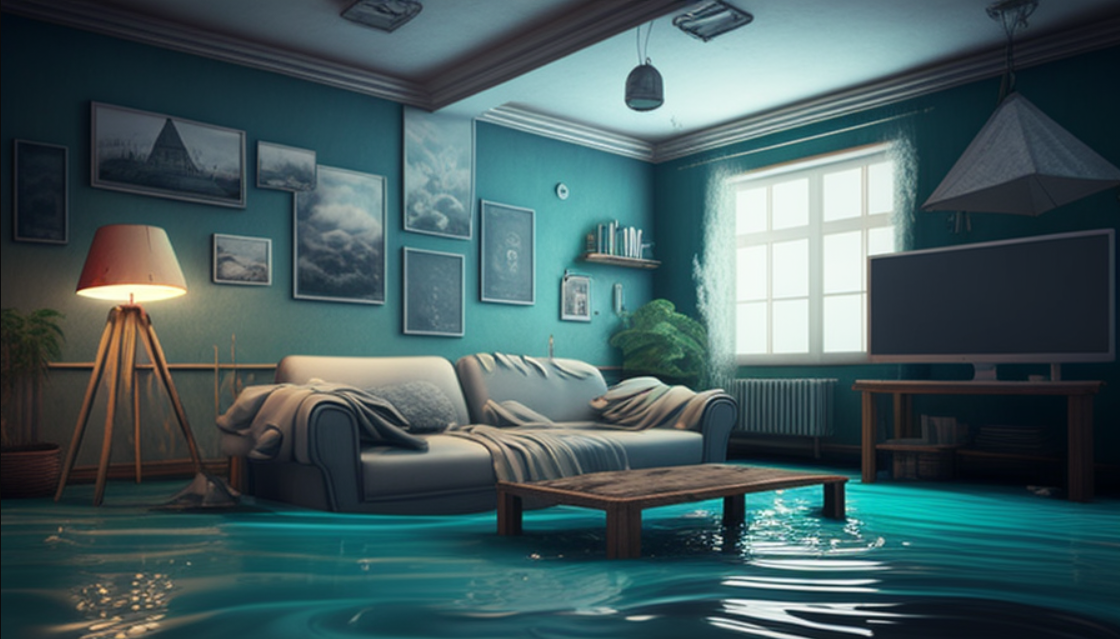Water damage and flood damage can both cause significant issues for homeowners, but they are treated differently when it comes to insurance coverage. At Insurance Claim Hero, our mission is to empower homeowners and ensure that major insurance carriers are acting in your best interest.
In this article, we’ll explore the differences between water damage and flood damage, as well as how these distinctions impact your homeowners insurance policy.
Table of contents
Water Damage
Definition: Water damage refers to damage caused by water entering your home through sources like broken pipes, leaking roofs, or faulty appliances. This type of damage is typically sudden and accidental, rather than the result of a natural disaster or weather event.
Homeowners Insurance Coverage: Most standard homeowners insurance policies provide coverage for water damage, as long as the cause is sudden and accidental. However, policies often exclude specific sources of water damage, such as sewer backups or gradual leaks. It’s essential to review your policy to understand the extent of your coverage and any limitations or exclusions.
Flood Damage
Definition: Flood damage is the result of water from a natural event, such as heavy rainfall, storm surges, or overflowing rivers, entering your home. Floods can cause extensive damage to your home’s structure, as well as your personal belongings.
Homeowners Insurance Coverage: Standard homeowners insurance policies typically exclude flood damage from their coverage. To protect your home and belongings from flood-related losses, you’ll need to purchase a separate flood insurance policy, usually through the National Flood Insurance Program (NFIP) or a private insurer.
Understanding the Difference and Protecting Your Home
Review Your Policy: To ensure you have adequate coverage for both water damage and flood damage, review your homeowners insurance policy and any separate flood insurance policy you may have. Familiarize yourself with the specific perils covered, as well as any limitations or exclusions.
Consider Additional Coverage: If your homeowners insurance policy excludes certain types of water damage, such as sewer backups, consider purchasing additional coverage to fill the gaps. This extra protection can provide peace of mind and financial security in the event of a water damage incident.
Prepare for Potential Floods: If you live in an area prone to flooding, take steps to protect your home and belongings. This may include installing a sump pump, using sandbags or other barriers, and elevating critical appliances and utilities.
Maintain Your Home: Regular home maintenance can help prevent water damage incidents. Keep your gutters clean, inspect your roof for damage, and ensure your plumbing and appliances are in good working order.
Conclusion
In conclusion, understanding the disparities between water damage and flood damage is crucial for homeowners to ensure adequate insurance coverage and protect their investments. By familiarizing yourself with your policy, considering additional coverage options, and implementing preventive measures, you can safeguard your home against unforeseen water-related events. At InsuranceClaimHero.org, we’re committed to empowering homeowners and providing guidance through insurance complexities. Stay informed, stay protected, and trust Insurance Claim Hero to be your ally in navigating insurance challenges.
FAQ
Water damage refers to harm caused by water infiltration from sources like burst pipes or leaks, while flood damage results from natural events inundating a property.
Standard homeowners insurance typically excludes flood damage coverage. A separate flood insurance policy is necessary to protect against flood-related losses.
Install preventive measures like sump pumps, sandbags, and elevate utilities to mitigate flood risks.
Regular home maintenance such as gutter clearing and plumbing inspections can help prevent water damage.




